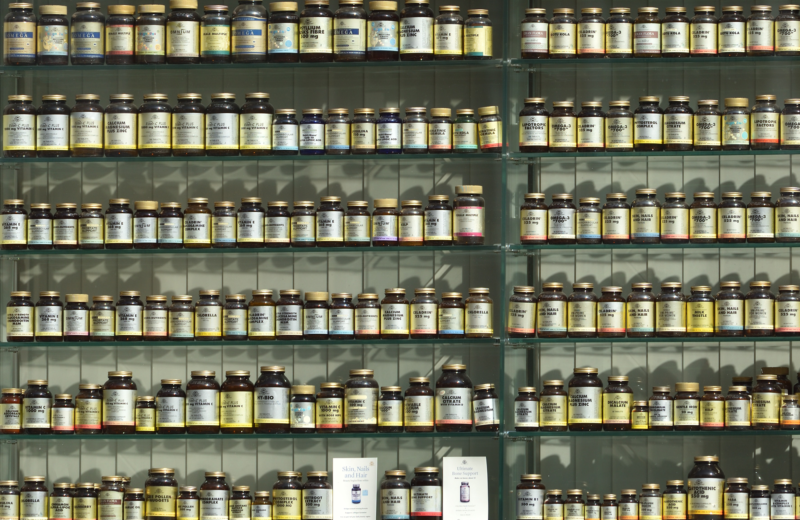If you are one of the millions of people who have some type of desire to either lose some excess weight or even maintain the weight that they are currently at, incorporating diet supplements into your daily routine may sound like a great idea. Most of the manufacturers of all these diet supplements are making some pretty extravagant promises about what their products are able to do for you and the properties of their supplements, but most of the claims that they are making are not going to be backed by any type of actual clinical research of any kind.
In fact, there are a lot of supplements out there claiming that they can help you shed your unwanted pounds and burn more fat without doing anything that you’re not already doing may actually hold several different hidden dangers that can be very detrimental to your health. But even with all the risks that are associated with using these types of diet and weight loss supplements, the amount of people who are demanding them has continuously increased over the past several years, especially among those who are trying to deal with some type of eating disorder.
Studies have actually shown that at any given time, about 50% of those who are struggling with some type of eating disorder are using some type of over-the-counter diet pill, prescription drugs, or some type of herbal supplement in order to help them lose weight. However, unless you are going to be using these weight loss drugs because you actually have a legitimate medical condition that warrants their use under the supervision of your doctor, there is a very high probability that you are going to be putting yourself at risk by using the supplements that you are using. With that being said, you may be wondering to yourself what exactly a diet supplement really is?
What are Diet Supplements?
The term diet supplement can be interpreted to mean several different things, but to clarify what really is considered to be a ‘diet supplement’, is any product that you are able to take orally which will add to whatever your ordinary diet currently is. Now keep in mind that not all diet supplements have been designed to help you lose weight. In fact, there are many different supplements that are considered to be a diet supplement that actually just help you with the valuable nutrition replacement if you are not able to get all of your vitamins and minerals through your daily diet. With that being said, a diet supplement may potentially contain:
- Minerals
- Vitamins
- Enzymes
- Amino Acids (which are considered to be the building blocks of protein)
- Botanical herbs/products
- Organ products
- Glandular extracts
Most of the people who are using diet supplements are going to be doing so for a variety of different reasons, some of the more common ones being in order to help them lose more weight faster, to help replace the nutrients that they have lost throughout the day, to help them build new muscle tissue, to increase one or multiple of their physical functions such as their eyesight, to help improve their quality of sleep, or even to help boost their energy levels.
But just because you can find a diet pill or other type of supplement that sells in a very attractive package at your local drug store or online, doesn’t necessarily mean that the supplement is going to be safe for you to consume. In fact, one of the biggest things that manufacturers pray on is the fact that there are many people out there who do not know that all of the diet products that are sold in the United States are not regulated by any governing agency, that including the FDA (Food and Drug Administration), unless there is a brand new ingredient that is contained within the product.
According to the DSHEA (Dietary Supplement and health Education Act) of 1994, the responsibility of proving that their supplement is safe for consumer consumption is the manufacturer of the product. Unfortunately, not all of the manufacturers of these diet and weight loss products comply with this particular requirement before they put their products for sale on the market. You may not be surprised to hear that there are actually many manufacturers who have been accused of using false claims about the products that they are selling, often times adding some pharmaceutical grade ingredients to their supplements and even producing their products in conditions and circumstances that would not be considered safe.
How Does a Weight Loss Supplement Work?
If you are in the market for a diet supplement that is claiming to help you lose your excess weight, you are definitely going to have not type of shortage when it comes to choices. Many of the companies that are distributing these types of products will make claims that some of the ingredients used in their supplements are able to help you to achieve similar results to these:
- Help curb all your food cravings (bee pollen, chickweed, fennel)
- Help you feel fuller faster so that you eat less (psyllium, guar gum)
- Helps to boost your metabolism (guarana, B-complex vitamins, caffeine, synephrine)
- Help slow down your body’s production of fat (hydrocitric acid, green tea, flax seed)
- Prevent your body from absorbing the fat out of the foods that you consume (chondritin)
When it comes to diet supplements, you can get them in just about any kind of formulation that you can think of that’s taken orally. This includes capsules and pills to powders, teas, and liquids. Some of the products are supposed to be taken when you are eating, while some others are taken in place of a meal. You also have the over-the-counter diet products that will supposedly help you to boost your body’s metabolism, which in turn will help you to lose more weight throughout the day. One of the primary ingredients in products like this are going to be caffeine, which is actually a central nervous system stimulant that is thought to help your body burn more fat through the process that is known thermogenesis. However, the risks that are associated with these stimulants can very easily outweigh any of the benefits.
The Dangers of Weight Loss Pills
While there are going to be many diet supplements which are going to be harmless and even have a positive effect on feeling full, boosting your metabolism or burning fat, there are some ingredients that are readily used in weight loss supplements which have been completely banned for use by the FDA due to the harmful side effects that are attached to them. Some of these side effects include:
- High blood pressure
- Increased heart rate
- Diarrhea
- Agitation
- Sleepiness
- Liver damage
- Kidney problems
- Rectal bleeding
Here are some of the banned supplements that have been proven to be unsafe for any type of consumption:
- Ephedra – Banned in 2004 for inducing a higher risk of heart attacks and strokes.
- Hydroxycut – Recalled and banned in 2009 as reports that it was directly linked to the causing hepatitis and jaundice within its users. On top of that, one user of Hydroxycut ended up dying, while another user needed to have a liver transplant.
- Fen-Phen – Recalled during the late 1990s, this drug was proven to be directly linked to several different cases of heart damage and lung disease.
- Meridia – Was taken off the market in the year 2010 after studies revealed that the use of the drug would cause an increase in the user’s risk for having a stroke or heart attack. Once there was evidence that the drug was associated with cardiovascular damage, the manufacturer voluntarily took it off the market and stopped its production.
What’s Actually in Your Diet Supplements?
One of the largest risks that are associated with taking any over-the-counter diet or weight loss supplements is that there is no way of knowing exactly what is actually in the product. Since the FDA does no type of testing for weight loss products, there is no guarantee that all of the ingredients in the supplements are always safe for you to consume. There is a list of ingredients that are considered to be ‘tainted’ and that you should stay away from according to the FDA, but they do nothing to stop the use of these ingredients within the actual diet products. And since manufacturer’s do not necessarily have to list all of the ingredients that are in their products on the products label, you have no way of really knowing what the ingredients in the product actually are.
When it comes to taking over-the-counter diet and weight loss supplements, it can be a very tricky game that you are playing. Just be sure that prior to starting any new diet supplement that you consult with your physician to make sure that it’s a good idea and that you are safe to do so. This way, if you have any type of adverse reaction to the new supplement, your doctor is already aware of what your plans for taking the supplement actually were, meaning that they will be much better prepared if that situation does arise.

